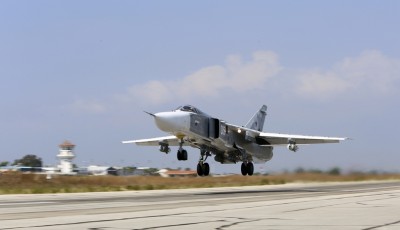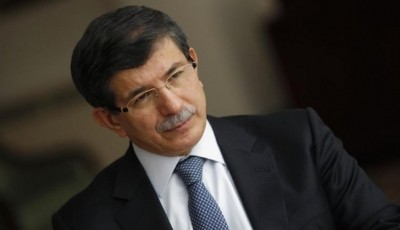US air strike kills Khurasan leader in Syria
Muhsin al-Fadhli was killed in a “kinetic strike” on July 8 while travelling in a vehicle near the north- western Syrian town of Sarmada, said a Pentagon spokesman, Captain Jeff Davis, on Tuesday.
The head of the radical al-Qaeda offshoot who was credited with converting and radicalising the British extremist known as “Jihadi John” has been killed in a United States airstrike, the Pentagon announced.
He was a leader of the Khorasan Group, a cadre of al-Qaeda operatives who were sent from Pakistan to Syria to plot attacks on the West.
Al-Fadhli was a senior al-Qaida operative who, as said by the State Department, was so close to Osama bin Laden that he was among a small group of people who knew about the September 11, 2001, attacks before they were launched.
Al-Fadhli was also involved in terrorist attacks that took place in October 2002, including those against U.S. Marines on Faylaka Island in Kuwait and on the French ship MV Limburg, the DOD spokesman added.
“His death will degrade and disrupt ongoing external operations of al-Qaida against the United States and its allies and partners”, the captain reportedly declared.
He did not say whether it was a drone or a manned aircraft that killed the 34-year-old Fadhli.
Seven years later, the state department offered a $7m (£4.5m; €6.4m) reward for information that led to the capture or killing of Fadhli, saying he had become the leader of al-Qaeda’s network in Iran and was responsible for the movement of money and fighters for its operations in the region.
Officials have said that the Khorasan militants were sent to Syria by al-Qaida leader Ayman al-Zawahiri to recruit Europeans and Americans whose passports allow them to board a U.S.-bound airliner with less scrutiny from security officials.
Before September’s missile strikes, US intelligence reports indicated that the Khorasan Group was “in the final stages of plans to execute major attacks”.
Classified U.S. intelligence assessments revealed that the Khorasan group had joined forces with bomb-makers from al-Qaida’s Yemen affiliate to pilot new methods aimed at slipping explosives past airport security.
Officials feared the Khorasan militants would provide these sophisticated explosives to their western recruits who could sneak them on to US-bound flights.
But Abu Mohammed al-Golani, leader of the Nusra Front group in Syria, denied that the Khorasan group existed in a recent interview. “The Americans came up with it to deceive the public”, he insisted.












